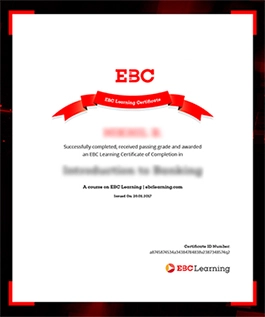Economics in Competition Law
Economics relies on theory, numbers and scientific evidence. Economic evidence and analysis play a crucial role when dealing with competition law. Economic analysis therefore is the heart of competition law.
As a lawyer it is essential to have some knowledge on economic analysis when dealing with competition law. This course aims to apply economic theory to the practice of competition law.

The mere possession of monopoly power, and the concomitant charging of monopoly prices, is not only not unlawful, it is an important element of the free-market system. The opportunity to charge monopoly prices – at least for a short period – is what attracts ‘business acumen’ in the first place; it induces risk taking that produces innovation and economic growth.
Justice Antonin Scalia- 1. 📕 Introduction
- 1.1 ▸ Welcome
- 1.2 ▸ Why take this course?
- 2. 📕 Role of Competition Law
- 2.1 ▸ Why competition law?
- 2.2 ▸ Need for economics in competition cases
- 2.3 ▸ Moving from MRTP to the Competition Act, 2002
- 2.4 ▸ Competition Commission of India (CCI) and COMPAT
- 3. 📕 Basic Microeconomics
- 3.1 ▸ Demand and supply curve
- 3.2 ▸ Elasticity
- 3.3 ▸ Cross-price elasticity
- 3.4 ▸ Marginal cost
- 3.5 ▸ Producer surplus and consumer surplus
- 4. 📕 Goals of Competition Law
- 4.1 ▸ Efficiency
- 4.2 ▸ Consumer welfare
- 5. 📕 Economic Approaches - Form versus Effect
- 5.1 ▸ The Harvard School approach
- 5.2 ▸ Chicago School approach
- 5.3 ▸ Which theory does India follow?
- 5.4 ▸ Transaction cost and industrial organisation theories
- 6. 📕 Market Power and its Abuse
- 6.1 ▸ What is market power?
- 6.2 ▸ Identifying the source of market power
- 6.3 ▸ What is dominance?
- 7. 📕 Relevant Market
- 7.1 ▸ Determining the relevant product market
- 7.2 ▸ Determining the relevant geographic market
- 8. 📕 Estimating Market Power
- 8.1 ▸ Conditions necessary for market power
- 8.2 ▸ Using elasticity to determine market power
- 8.3 ▸ Estimating market power using market share
- 8.4 ▸ Estimating market power – Lerner Index
- 8.5 ▸ Estimating market power – HHI Index
- 8.6 ▸ Relationship between profits and market power
- 8.7 ▸ Calculating costs when there exist common costs
- 9. 📕 Determining the Relevant Market
- 9.1 ▸ Relevant market – Hypothetical Monopolist Test or SSNIP test
- 9.2 ▸ Critical loss analysis
- 9.3 ▸ Demand and supply substitutability
- 10. 📕 Abuse and Vertical Restraints
- 10.1 ▸ What is abuse of dominant position?
- 10.2 ▸ Vertical restraints - the concept
- 10.3 ▸ Principal agent relationship in economics
- 10.4 ▸ Justifying vertical restraints
- 11. 📕 Other forms of Abuse
- 11.1 ▸ Tying and bundling
- 11.2 ▸ Justifying tying and bundling
- 11.3 ▸ Predatory pricing
- 11.4 ▸ Justifications for predatory pricing
- 12. 📕 Collusions and Cartels
- 12.1 ▸ Understanding collusions and collusive agreements
- 12.2 ▸ Identifying a cartel – conditions necessary for cartels
- 12.3 ▸ Defending a cartel
- 12.4 ▸ Justifying cartels
- 13. 📕 Good bye
- 13.1 ▸ Conclusion and next steps
WHY TAKE THIS COURSE?
Today the economic market has an inflow of goods and services and with that the need for competition law to protect the rights of the consumer and ensure freedom of trade has become the need of the hour. Competition Law simply put protects the rights of the consumers and enterprising entrepreneurs. It is therefore essential to study and understand the aspect of this field of law.
To understand competition law, it is even more crucial to have some knowledge of economics as competition law arises from the branch of macroeconomics. This course is aimed at simplifying economics and understand its working in competition law. This course is aimed clearing concepts from an economic perspective, which will in turn add significant value to add to your cases.
As a competition law practitioner, there will be times when it is difficult to understand economic concepts. This course is also aimed at helping you weave those economic concepts into your arguments seamlessly.
In this course you’ll learn to:
- Describe the role and need for competition law in the national sphere
- Explain the workings of Competition Commission of India (CCI) and COMPAT
- Understand the basic concepts of macroeconomics
- Look at the various economic approaches to have a clear view and understanding of the usage of economics in competition law
- Understand the role, functioning and power of markets
- Explain the role and functioning of collusions and cartels
PREREQUISITES
You can take this course, if:
- You are a recent law graduate or graduating from law school
- You have a basic understanding of legal practice and procedure
- You are a competition law practitioner
Instructors

Yugank Goyal
Yugank Goyal is the Assistant Professor and Assistant Dean (Research & International Collaborations) at Jindal Global Law School. His tryst with Economics of Competition Law began while studying for his Masters at Erasmus University Rotterdam. Having worked in areas related to regulation and governance, he has gained a firm mastery over economics of competition law.

The final cause of law is the welfare of society.
Benjamin CardozoCertificate
Complete this course and exercises to earn a certificate. Share it with your friends, colleagues, and employers.*
*You must Subscribe to get a certificate.

Limit Reached or Trial Expired
You have reached the limit of 2 audit enrollments or your trial period has expired.

